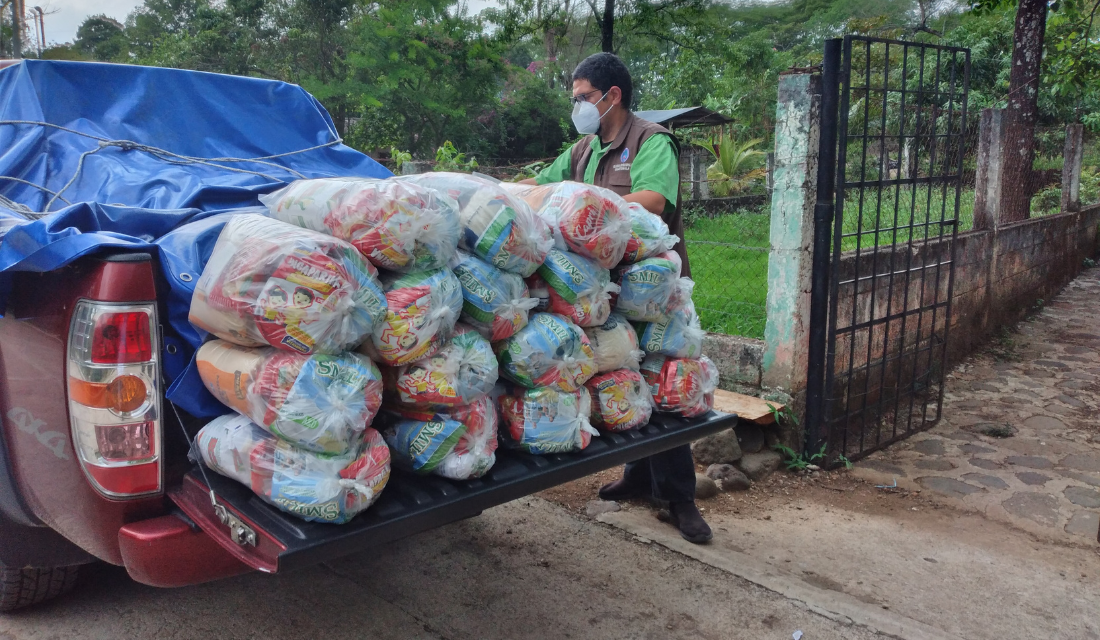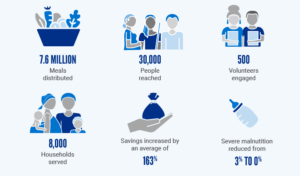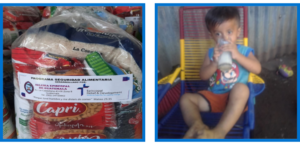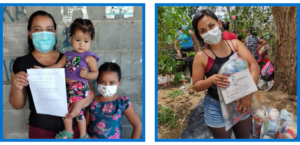Seven Million Reasons to Partner for Lasting Change

Maura (27) and her husband relied heavily on income from his agriculture business to feed their family. But the 2020 hurricane season was especially hard on Maura’s community of Salinas del Potrero, El Salvador, and the family suffered a significant loss of income.
In 2021, Episcopal Relief & Development, with support from the S.L. Gimbel Foundation, a component fund at The Inland Empire Community Foundation, and the Jackson Kemper Foundation, partnered with the Episcopal Diocese of El Salvador, the Episcopal Church of Guatemala’s Diocesan Development Office, the Anglican Agency for the Development of Honduras of the Episcopal Church of Honduras (AANGLIDESH), and the Council of Protestant Churches of Nicaragua (CEPAD) to alleviate hunger and help families access nutritious food in communities like Maura’s in El Salvador, Guatemala, Honduras and Nicaragua. So far, the Central America Emergency Food Relief and Resilience project has provided over 7 million meals to 30,000 people struggling with hunger and poverty. Almost 500 volunteers from partners’ networks of clergy and church members have helped to register households and distribute food. Volunteer engagement is vital in remote communities where access is difficult due to poor infrastructure.
So far, the Central America Emergency Food Relief and Resilience project has provided over 7 million meals to 30,000 people struggling with hunger and poverty. Almost 500 volunteers from partners’ networks of clergy and church members have helped to register households and distribute food. Volunteer engagement is vital in remote communities where access is difficult due to poor infrastructure.
“I’d love to give my children milk, but it is too expensive. …
My children usually drink coffee for breakfast because it is cheaper.”
—Mother of three young children, El Salvador
Additionally, food distribution improved the health of children within the communities. In households in El Salvador that received food bags with balanced and nutritious food options, the healthy development of young children.
In rural El Salvador, many people in marginalized communities lack diversity in their diets. Dr. Daniella, the project’s lead physician, used the opportunity to raise awareness around the need for nutritious diets that would improve the overall health of the children within the community.

One of the recipients, a mother of three young children, said “I’d love to give my children milk, but it is too expensive. I don’t usually have money to buy it. My children usually drink coffee for breakfast because it is cheaper than milk.”
Dr. Daniella added: “As a doctor, I am proud to hear how communities are better off due to this project. School principals are testifying on the improvement seen in school results, and as a physician seeing the level of malnutrition decrease is very impactful.”
“I am proud to hear how communities are better off due to this project …
As a physician seeing the level of malnutrition decrease is very impactful.”
—Dr. Daniella, El Salvador

Because they received food, families were able to add to their savings. Some used the money they would have spent on food to buy medicines. Others paid for school fees, clothes and shoes, or repaired their houses or bought planting supplies.In Salinas del Potrero, Maura expressed appreciation for the months of food assistance that enabled her to grow her savings because her family’s resources were not spent exclusively on the household’s sustenance. Specifically, Maura was able to purchase a blender for $75. With her new blender, she has started a small business making and selling fruit drinks. Maura’s new business is currently supplementing her husband’s reduced agricultural income and helping her family recover.
To learn more about the implementation and impact of the project, read 2021 Spotlight: Central America Emergency Food Relief and Resilience Project or contact Emily Bloom, Director of Institutional Partnerships at Episcopal Relief & Development.


